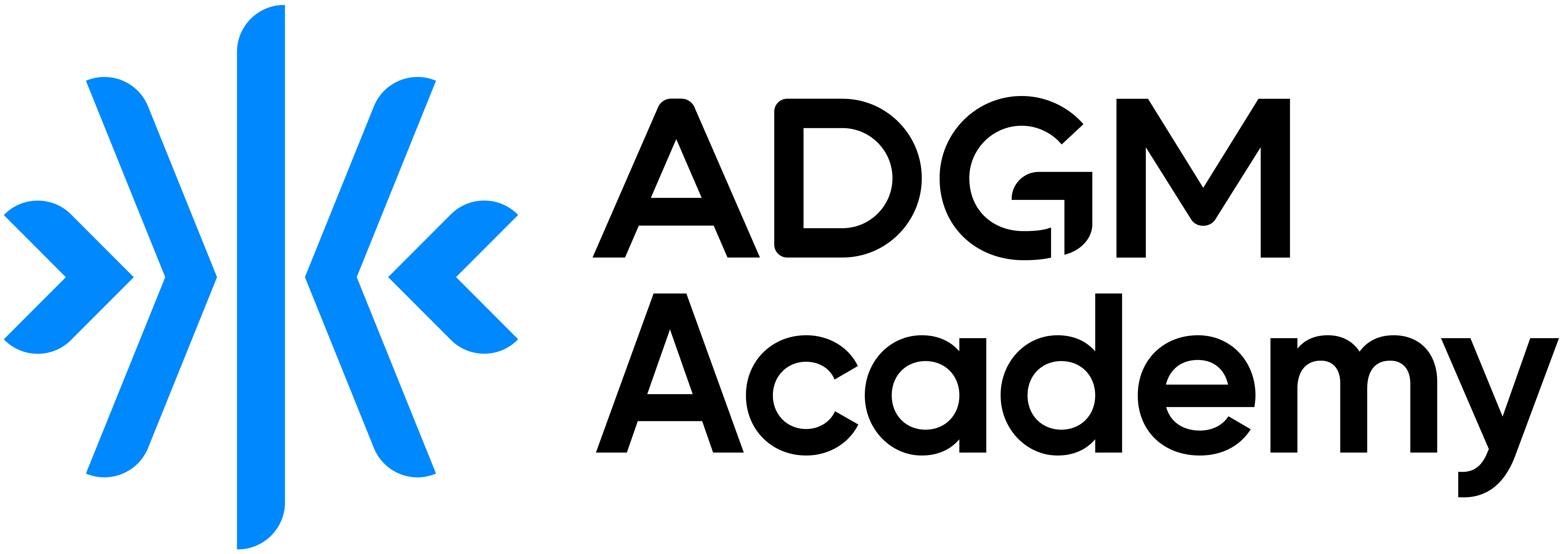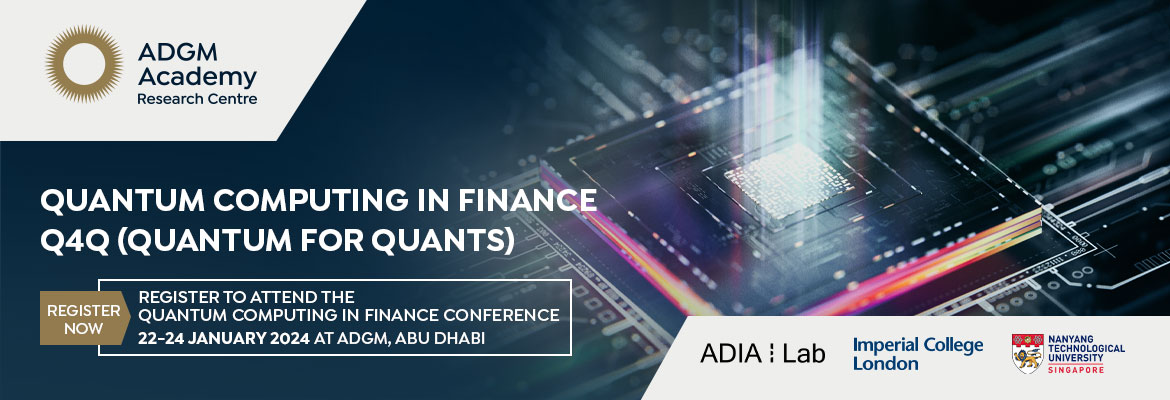
Event Agenda: 22 January 2024 – Day 1
| Time | Agenda |
|---|---|
| 08:30 - 09:00 |
Registration |
| 09:00 - 09:05 |
Welcome address Speaker: 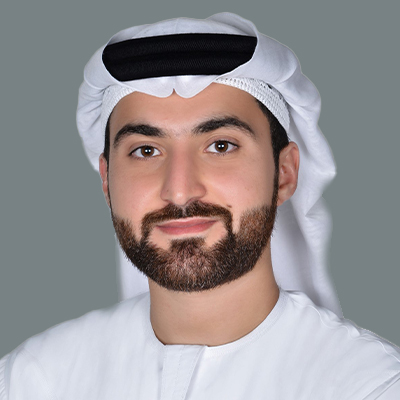
Jassim Al MarzooqiAssociate Director – Business Enablement Department | ADGM Academy Jassim Al Marzooqi plays a lead role within Abu Dhabi Global Market Academy’s (ADGMA) management team ensuring alignment to the organization’s strategic direction as well as designing and launching programs that directly contribute towards the GDP growth of the emirate of Abu Dhabi and support the knowledge-based economy. His role as Associate Director, Business Enablement is to ensure continued growth and expansion of ADGMA as a leading institution from both an operational and tactical level. |
| 09:05 - 09:10 |
Welcome address Speaker: 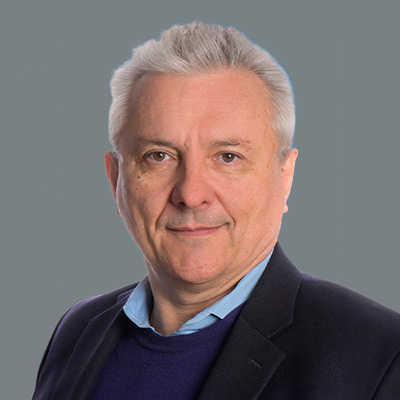
Horst SimonDirector | ADIA Lab Dr. Horst Simon is a globally recognized expert in the development of parallel computational methods, with a specialization in sparse matrix algorithms and large-scale eigenvalue problems, boasting 40 years of experience in the sector. He recently became the inaugural Director of ADIA Lab in 2022, a leading institution dedicated to pioneering research and innovation in the field of computational and data science. Before this, he held various prominent positions at Berkeley Lab since 1996, significantly contributing to energy innovation and fostering close collaborations between national labs and the industry. Dr. Simon has also worked with esteemed organizations such as Boeing, SGI, NASA Ames, and renowned universities like Stony Brook and UC Berkeley. His commendable work has earned him prestigious recognitions including two Gordon Bell Prizes in 2009 and 1988, the ACM SC Test of Time Award, and the SIAM CSE Career Award. He is a significant figure in the high-performance computing community, involved in the biannual publication of the TOP500 list of the most powerful supercomputers and is a distinguished SIAM Fellow. |
| 09:10 - 09:50 |
From quantum supremacy to quantum utility Nature allows the storage and manipulation of data in new and powerful ways using quantum mechanics. I will explain the basic concepts behind the exponential power of this technology and how to build a quantum computer using superconductors. I will show experimental data from Google on a “quantum supremacy” experiment with 53 qubits that runs much faster than state-of-the-art classical supercomputers. I will also discuss the next important milestone of quantum utility - solving useful computations faster than classical computers. Although there are two schools of thought for accomplishing this, via near-term (NISQ) algorithms or error correction, both require significant improvements in qubit quality that lowers errors to the 10^-3 to 10^-4 range. I will also describe a vision of how superconducting qubits should be fabricated in the upcoming years. Speaker: 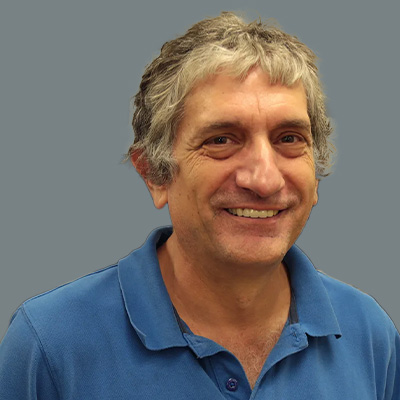
John MartinisProfessor of Physics | UC Santa Barbara John Martinis did pioneering experiments in superconducting qubits in the mid 1980’s for his PhD thesis. He has worked on a variety of low temperature device physics during his career, focusing on quantum computation since the late 1990s. He was awarded the London Prize in Low temperature physics in 2014 for his work in this field. From 2014 to 2020 he worked at Google to build a useful quantum computer, culminating in a quantum supremacy experiment in 2019. He was awarded the John Stewart Bell prize in 2021. |
| 09:50 - 10:30 |
Extracting and evaluating performance of NISQ Optimization experiments: beyond angle-parameter setting Owing to advancements in hardware quality and control software, there have been several recent demonstrations of experimental runs on gate-model noisy quantum processors, showcasing the use of 20+ qubits in regimes where simulations become challenging. In this talk, we will discuss insights gained from the DARPA ONISQ program, where NASA, USRA, and Rigetti Computing employed an array of techniques to combat noise while aiming to solve fully-connected binary optimization problems. We will delve into the impacts of the discovered techniques, which encompass ansatz approximations, swap-network synthesis, over parametrization, categorical parameters like ordering and symmetry transformations, and iterative decompositions. We will also explore how these can be amalgamated into a cohesive algorithm-tuning strategy that can be executed on-the-fly, achieving high approximation ratios within a few thousand runs for problems with 50+ variables encoded in as many qubits. Speaker: 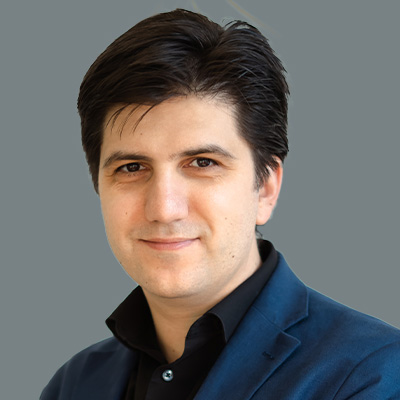
Davide VenturelliFellow / Senior Research Scientist | USRA and NASA Ames Dr. Davide Venturelli has worked since 2012 in the NASA Quantum AI Laboratory (QuAIL) under the NASA Academic Mission Service, invested in research projects dealing with quantum optimization applications and their implementation in a hardware-software co-design approach. He has authored more than 50 publications and 9 patents on the subject of AI, Theoretical Physics, Quantum Computing, and Robotics. He teaches Quantum Integer Programming as an adjunct professor at Carnegie Mellon University Tepper's School of Business. He has experience winning, managing, and leading multi-million dollar R&D projects as Principal Investigator or co-PI, sponsored by DARPA, NSF, and DOE. He is the co-lead of the Ecosystem task of the National Quantum Initiative Superconducting Quantum Materials and System (SQMS) Center at Fermi National Laboratory. In 2021 he was elected member of the Quantum Economic Development Consortium (QED-C) steering committee, the organism coordinating 100+ companies involved in building the supply chain for the emergent quantum technology industry. |
| 10:30 - 11:00 |
Coffee Break |
| 11:00 - 11:30 |
Scalable quantum algorithms for large scale constrained portfolio optimization We introduce a quantum framework that utilizes Quadratic Unconstrained Binary Optimization (QUBO) to optimize dynamic trading strategies, taking into account transaction costs, integer restrictions, short selling and scalability. While dynamic trading strategies in modern portfolio optimization have been extensively studied, their practical implementation often faces considerable challenges due to market frictions and computing limitations, which adversely affect computational efficiency. In light of this, our work explores the potential of quantum solutions to transform the field of portfolio optimization. We present quantum algorithms that can tackle the complexities of real-world portfolio optimization and ensure optimal results. By doing so, we aim to bridge the gap between quantum finance and practical portfolio optimization. Speaker: 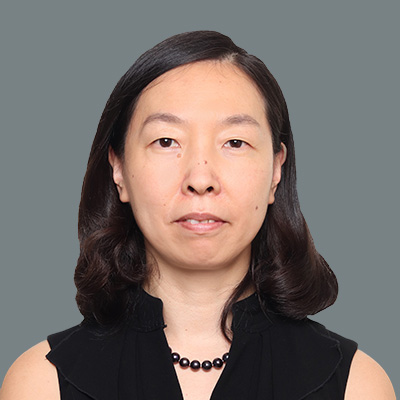
Ying ChenAcademic Director of the Asian Institute of Digital Finance / Director of the Centre of Quantitative Finance | National University of Singapore Dr. Ying Chen is an Associate Professor in the Department of Mathematics, Director of the Centre for Quantitative Finance, Director of the PhD Program in Digital FinTech at the Asian Institute of Digital Finance, and a Joint Appointee at the Risk Management Institute, National University of Singapore. She develops statistical modeling and machine learning methods tailored for complex data characterized by nonstationarity, high frequency, large dimensions, and intricate dependencies. Her work also extends to quantum finance, forecasting, energy modeling, citation analysis, text mining and sentiment analysis, and network analysis. Dr. Chen is a Council Member of the International Statistical Institute and an ISI Elected Member. Additionally, She serves as the Scientific Secretary and a member of the Executive Committee of the International Association for Statistical Computing (IASC) and is the Chairperson-elect of the Asian Regional Section (ARS) of the IASC. |
| 11:30 - 12:00 |
Quantum algorithms for risk management in finance We explore the use of quantum algorithms applied to credit and market risk: credit scoring for small and medium size businesses (SMEs) and rare events in capital markets. For credit scoring a quantum/classical hybrid approach has been used to experiment with several quantum neural network (QNN) models with a range of parameters. Results are shown from the best model, using two quantum classifiers and a classical neural network, applied to data for companies in Singapore. We observe significantly more efficient training for the quantum models over the classical models for comparable prediction performance. For rare events in capital markets, we estimate the probability of an occurrence of a rare event in a specified time frame using an innovative quantum hidden Markov model (QHMM) on financial time-series data. We compare to exact calculations and classical models using S&P500 time-series and artificially created data. First results show the scaling of tracking error and the behaviour of the QHMM. Other factors for the future practical implementation of quantum systems are also discussed. Speaker: 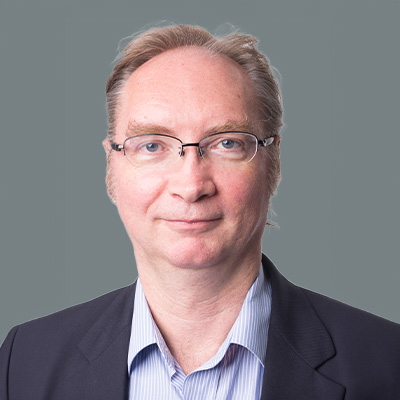
Paul GriffinAssociate Professor | Singapore Management University Currently Paul is an Associate Professor in SCIS working on disruptive technologies in FinTech. He gained a PhD at Imperial College in quantum physics and then worked in scientific instruments. Prior to SMU, he lead application development teams on global financial technology projects for over 15 years in the UK and Asia. Paul has been advising companies on disruptive technologies since 2014 and is now teaching and researching on blockchain and quantum computing as well as presenting at events, judging hackathons and moderating panel discussions. |
| 12:00 - 12:30 |
Quantum computing for financial portfolio, option pricing, and risk analysis Within the realm of finance, numerous challenges demand intensive computational resources and timely solutions. Consider financial portfolio optimization, a process aimed at maximizing returns while minimizing risks by strategically selecting asset distributions. incorporating real-world constraints, such as limitations on concurrent asset holdings, significantly escalates the computational costs associated with portfolio optimization. Similarly, some option valuation problems exhibit frustratingly slow resolution on current computing systems, even when dealing with a small number of underlying assets. Furthermore, existing methods for risk analysis, mandated by regulatory bodies and institutional risk management, are computationally demanding. Our goal is to explore the transformative potential of quantum computation in addressing these intricate challenges pervasive in the financial sector Speaker: 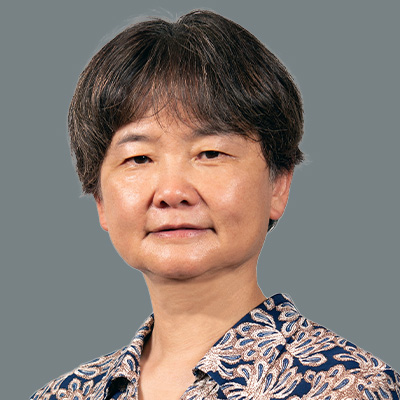
Jingbo WangProfessor | University of Western Australia Prof. Jingbo Wang is the Director of the QUISA (Quantum Information, Simulation and Algorithms) Research Centre at The University of Western Australia. Her research team pioneered quantum walk-based algorithms to solve practical problems otherwise intractable. Prof Wang also leads the UWA-Pawsey educational quantum computing centre. In this capacity, she oversees a comprehensive suite of quantum computing lecture courses offered at the undergraduate, masters, and PhD levels. Her leadership contributes significantly to the educational advancement and integration of quantum computing expertise within the academic realm. Prof Wang is also the co-Director of Quantum Girls, a government-funded project aiming to encourage more girls and women throughout Australia to consider careers in quantum science, in particular quantum computing. |
| 12:30 - 13:30 |
Lunch |
| 13:30 - 14:00 |
Quantum Optimization in the Era of Quantum Utility During this talk, we first discuss the potential advantage of quantum computing in optimization from a complexity theoretic perspective and highlight the importance of quantum optimization heuristics. The ascent of quantum computers with 100+ qubits allows us to develop and test such heuristics in practice at a non-trivial scale. To this extent, we discuss Quantum Error Mitigation in the context of optimization and show recent results of a demonstration on 127 qubits. Speaker: 
Stefan WoernerManager, Quantum Computational Science | IBM Dr. Stefan Woerner is a Principal Research Scientist and Manager of the Quantum Computational Science group of IBM Quantum at IBM Research Europe - Zurich. The focus of his research is focused on quantum algorithms for optimization, simulation, and machine learning as well as their practical applications, particularly in finance. |
| 14:00 - 14:30 |
The need for Quantum Blockchain The advent of quantum computing fundamentally threatens many important digital technologies. Blockchain, despite being at the forefront of digital technology for its potential to provide transparency, resilience and security for financial and other transactions, will quickly become obsolete in a quantum world. Quantum algorithms have already been developed which can easily solve the mainstays of blockchain security: public-key cryptography and hash functions. Consequently, traditional blockchain platforms are unsuitable for the quantum era, hence the urgent and inevitable need to develop a quantum version of blockchain that can secure it against both classical and quantum attacks. Speaker: 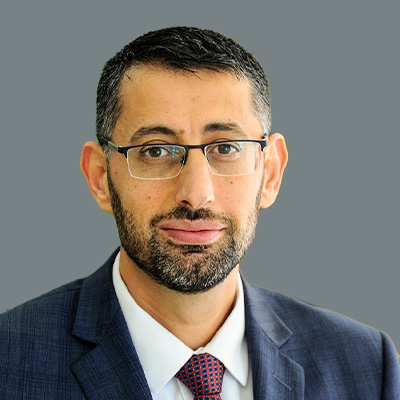
Ashraf KhalilProfessor | Zayed University Professor Khalil has over 20 years of experience in academia in diverse roles, spanning leadership, administration, research, and teaching, at top institutions in the UAE and USA. Prof. Khalil’s work spans the fields of Bioinformatics, Quantum Computing, Privacy, Human-Computer Interaction, AI Ethics and MIS and has been awarded external grants from ADEK, National Electronic Security Agency, Google & Emirates Foundation. An active researcher, he has published over 80 Scopus publications in highly ranked journals and conferences and holds 2 research-developed patents. He is keenly familiar with the academic and research culture of the UAE, especially having served full-time as the Director of Research at Abu Dhabi University for 6 years. In direct connection with his achievements in academia and academic leadership, Prof. Khalil personally puts his belief in experiential learning into practice. Having founded two start-ups spanning EdTech, E-commerce, Prof. Khalil has gained extensive and intimate familiarity with the entrepreneurial and innovation echo system in the UAE and the region as well as substantial people skills and connections. |
| 14:30 - 15:00 |
Quantum neural networks and applications Neural networks are now ubiquitous in Finance for data analysis, pricing, hedging, modelling, etc. We investigate their quantum counterparts, namely parameterised quantum circuits and prove some new form of universal approximation theorem with error bounds. This in turn provides solid foundations for their use, and we highlight a few of them, in particular in the context of (quantum) GAN and to solve (high-dimensional) PDEs that arise in Finance. Speaker: 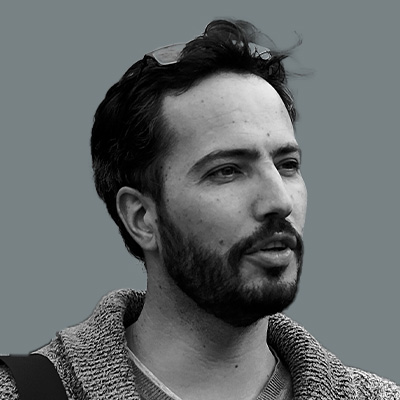
Antoine JacquierProfessor of Mathematics and Course Director of the MSc in Mathematics and Finance | Imperial College London Neural networks are now ubiquitous in Finance for data analysis, pricing, hedging, modelling, etc. We investigate their quantum counterparts, namely parameterised quantum circuits and prove some new form of universal approximation theorem with error bounds. This in turn provides solid foundations for their use, and we highlight a few of them, in particular in the context of (quantum) GAN and to solve (high-dimensional) PDEs that arise in Finance. |
| 15:00 - 15:30 |
Coffee Break |
| 15:30 - 16:00 |
QUBO on Groq: running Quantum Computer programs on a large scale Dataflow computer Quantum Computing is a wide field, bringing many advances in particle physics. A subset of Quantum Computers, using quantum annealing, solve Quadratic Unconstrained Binary Optimization (QUBO) problems which can also be computed on classical (deterministic dataflow) computers. A key challenge in Quantum Computing is the scarcity and small size of existing Quantum Computers, coupled with limited connectivity between QBits. The Groq QUBO platform enables Quantum researchers to run larger denser problems, resulting in QUBO matrices up to 200K by 200K on Groq machines, many years before the availability of physical Quantum Computers with the equivalent capacity. In this talk, I will show our recent results of running QUBO problems on Groq Language Processing Units (LPUs) for applications from optimization of Wind farms to High Frequency Trading. In the future, QUBOs, and maybe even Quantum Computers could also be used to train Artificial Intelligence. Speaker: 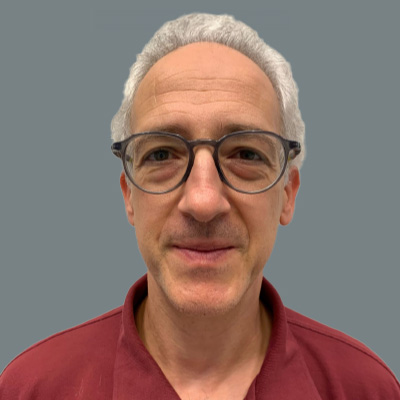
Oskar MencerCEO | Maxeler Technologis, a Groq Company Dr Oskar Mencer got his PhD at Stanford University in 2000. Since then Oskar worked at the Computing Science Center at Bell Labs in Murray Hill, and in 2003 took his Bell Labs project out to start Maxeler Technologies, to commercialize static Dataflow computing. After building and delivering Dataflow supercomputers to Chevron, Schlumberger, JP Morgan, Citibank, UK STFC Daresbury Labs, and Jülich in Germany, Maxeler got acquired by Groq, the Language Processing Unit (LPU) company in California in 2021. At Groq, now based in Dubai, Oskar continues to drive Dataflow as application development such as QUBO, Medical Prescription AI, Seismic Imaging, Finance Derivatives Risk, and other Physics simulations. |
| 16:00 - 16:30 |
Quantum-topological global framework for bioinformatic sequence alignment The alignment of biological sequences is a cornerstone in bioinformatics, essential for a wide range of applications from phylogenetic analysis to structural genomics and personalized medicine. Classical algorithms like Needleman-Wunsch and Smith-Waterman have been used. However, the computational costs associated with these algorithms scale poorly with increasing sequence length, rendering them impractical for real-world sequences that span thousands to millions of base pairs. This limitation poses significant challenges in the era of high-throughput sequencing technologies. We introduce a quantum computing framework to tackle these limitations, both in the NISQ era and in the fault-tolerant QC regime. Furthermore, we draw connections with algebraic geometry through the Mayer-Vietoris sequence, which is traditionally used to integrate local information into a global context. We argue that this interdisciplinary approach holds the promise of developing more efficient alignment methods, thereby accelerating the pace of scientific discovery and healthcare delivery. Speaker: 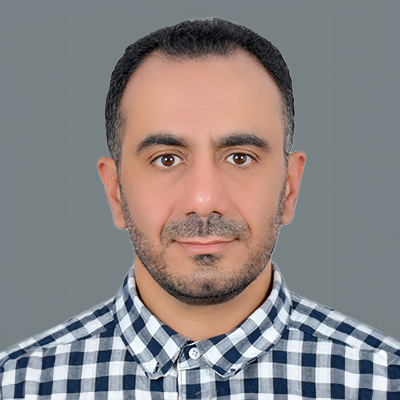
Raouf DridiFounder & CEO | Qamia Dr. Dridi is a seasoned leader in the fields of quantum computing, artificial intelligence, and mathematical optimization. With a PhD in Mathematics, Raouf has spent decades at the forefront of advanced technology. His professional journey includes distinguished roles such as the Advanced Technology Team Leader and Senior Quantum Solution and Development Scientist at Quantum Computing Inc.. Notably, Raouf played a pivotal role in helping Quantum Computing Inc. go public on NASDAQ, a testament to his business acumen and understanding of the quantum computing market. He has also served as Quantum Machine Learning and Optimization Lead at 1Qbit and holds multiple patents in the quantum computing space. As an academic contributor, Raouf co-founded the quantum computing group at Carnegie Mellon University, and helped push the boundaries of quantum and classical computing algorithms. In his role at Qamia., Raouf brings his extensive experience to guide the company's strategic direction in quantum algorithms and applications. He is passionate about harnessing the disruptive capabilities of quantum computing and AI to solve real-world problems in various industries including healthcare, and energy sectors. |
